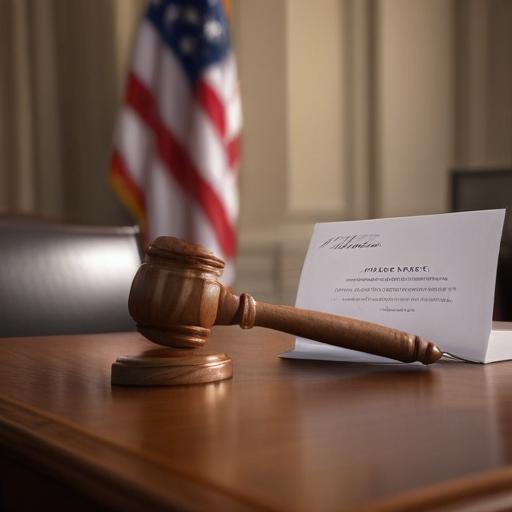The Republican-controlled House has officially issued a subpoena to the Justice Department for documents relating to the convicted sex offender Jeffrey Epstein. This action is expected to create a significant clash between Congress and the Trump administration over sensitive matters that have posed challenges for President Donald Trump. Chair of the House Oversight Committee, James Comer from Kentucky, formally put forth the subpoena on Tuesday, following a vote by one of the committee’s subcommittees to compel the department to release the files.
Comer emphasized the necessity for transparency around Epstein and his partner Ghislaine Maxwell, setting an August 19 deadline for the release of records. He stated in correspondence to Attorney General Pam Bondi that oversight is critical not just for Epstein’s case but also for addressing broader issues related to sex trafficking laws. The subpoenas issued by Comer also targeted prominent figures including Bill and Hillary Clinton, Robert S. Mueller III, and several former attorneys general from both major political parties.
The push for these documents arises from a fervent desire within parts of the GOP to see more openness regarding Epstein’s past dealings and investigations, particularly due to the dissatisfaction over Bondi’s earlier decision not to release files supposedly chronicling Epstein’s connections. Critics have pointed out that the examination of these files could lead to potential legislative reforms aimed at improving federal handling of sex trafficking cases.
In a more intricate development, a separate subcommittee moved to subpoena Maxwell, who is currently serving a 20-year sentence. There is significant interest in her testimony, prompting a stalled meeting as the committee considers her requests for immunity and advance access to the deposition inquiries.
With a majority of House Republicans calling for the documents, pressure is mounting on GOP leadership to respond to their constituents’ demands for accountability. This pressure has prompted Democratic efforts to capitalize on divisions within the GOP, particularly around the timing and effectiveness of the subpoenas ahead of critical votes scheduled upon Congress’s return.
The implications of these developments could be profound, as they not only affect the transparency of ongoing investigations but also serve as a litmus test for congressional cooperation amid a politically charged atmosphere. The unfolding situation presents an opportunity for constructive dialogue about legislation aimed at preventing sex trafficking, thereby fostering a bipartisan approach to addressing these critical issues.
